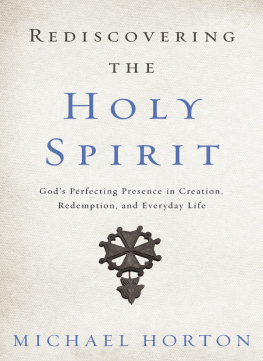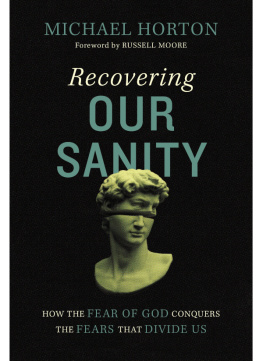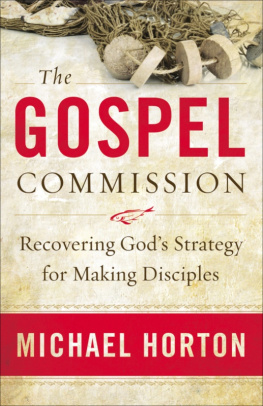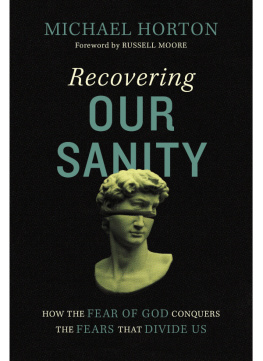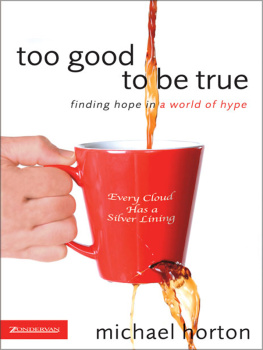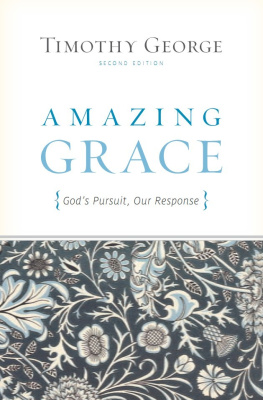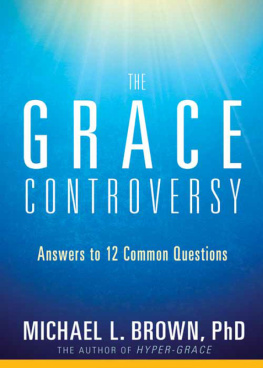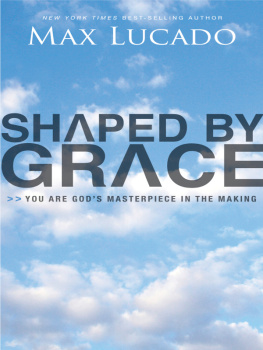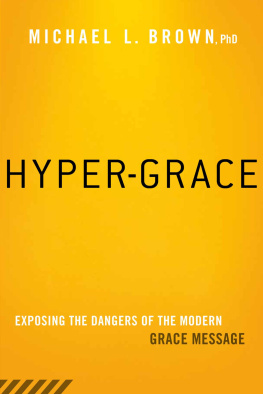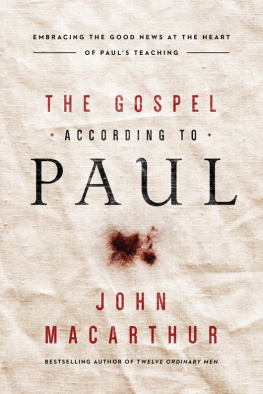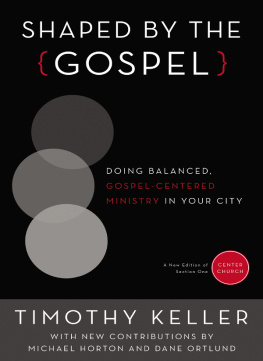Michael Horton - Putting Amazing Back into Grace: Embracing the Heart of the Gospel
Here you can read online Michael Horton - Putting Amazing Back into Grace: Embracing the Heart of the Gospel full text of the book (entire story) in english for free. Download pdf and epub, get meaning, cover and reviews about this ebook. year: 2011, publisher: Baker Publishing Group, genre: Religion. Description of the work, (preface) as well as reviews are available. Best literature library LitArk.com created for fans of good reading and offers a wide selection of genres:
Romance novel
Science fiction
Adventure
Detective
Science
History
Home and family
Prose
Art
Politics
Computer
Non-fiction
Religion
Business
Children
Humor
Choose a favorite category and find really read worthwhile books. Enjoy immersion in the world of imagination, feel the emotions of the characters or learn something new for yourself, make an fascinating discovery.

- Book:Putting Amazing Back into Grace: Embracing the Heart of the Gospel
- Author:
- Publisher:Baker Publishing Group
- Genre:
- Year:2011
- Rating:5 / 5
- Favourites:Add to favourites
- Your mark:
- 100
- 1
- 2
- 3
- 4
- 5
Putting Amazing Back into Grace: Embracing the Heart of the Gospel: summary, description and annotation
We offer to read an annotation, description, summary or preface (depends on what the author of the book "Putting Amazing Back into Grace: Embracing the Heart of the Gospel" wrote himself). If you haven't found the necessary information about the book — write in the comments, we will try to find it.
Putting Amazing Back into Grace: Embracing the Heart of the Gospel — read online for free the complete book (whole text) full work
Below is the text of the book, divided by pages. System saving the place of the last page read, allows you to conveniently read the book "Putting Amazing Back into Grace: Embracing the Heart of the Gospel" online for free, without having to search again every time where you left off. Put a bookmark, and you can go to the page where you finished reading at any time.
Font size:
Interval:
Bookmark:
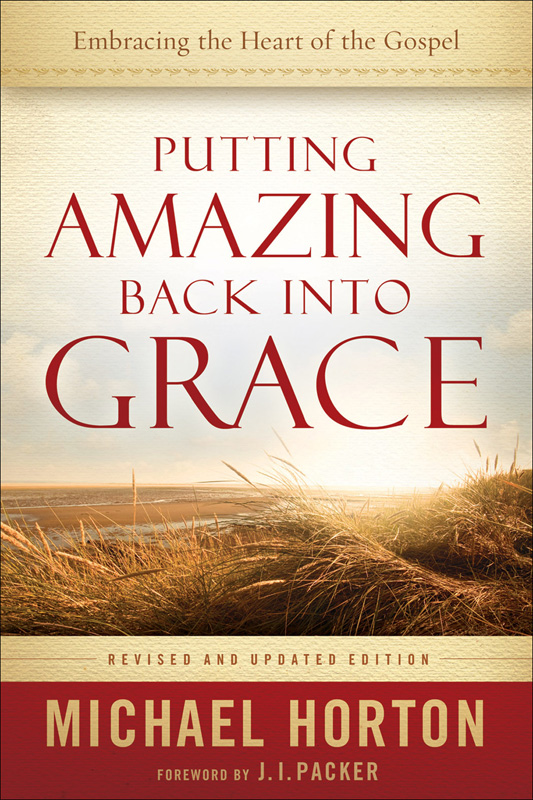

1991, 1994, 2002, 2011 by Michael Scott Horton
Previously published in 1994, 2002 by Baker Book House Company and in 1991 by Thomas Nelson
Published by Baker Books
a division of Baker Publishing Group
P.O. Box 6287, Grand Rapids, MI 49516-6287
www.bakerbooks.com
Ebook edition created 2011
All rights reserved. No part of this publication may be reproduced, stored in a retrieval system, or transmitted in any form or by any meansfor example, electronic, photocopy, recordingwithout the prior written permission of the publisher. The only exception is brief quotations in printed reviews.
ISBN 978-1-4412-3387-5
Library of Congress Cataloging-in-Publication Data is on file at the Library of Congress, Washington, DC.
Unless otherwise indicated, Scripture quotations are from the Holy Bible, New International Version. NIV. Copyright 1973, 1978, 1984 by Biblica, Inc. Used by permission of Zondervan. All rights reserved worldwide. www.zondervan.com
Scripture quotations labeled ESV are from The Holy Bible, English Standard Version (ESV), copyright 2001 by Crossway, a publishing ministry of Good News Publishers. Used by permission. All rights reserved. ESV Text Edition: 2007
Scripture quotations labeled KJV are from the King James Version of the Bible.
Scripture quotations labeled NASB are from the New American Standard Bible, copyright 1960, 1962, 1963, 1968, 1971, 1972, 1973, 1975, 1977, 1995 by The Lockman Foundation. Used by permission. www.lockman.org
Scripture quotations labeled NKJV are from the New King James Version. Copyright 1982 by Thomas Nelson, Inc. Used by permission. All rights reserved.
by J. I. Packer
: Welcome to the Reformation
Once upon a time, people in the Christian world knew that the most important issues anyone faces are those of eternity. They knew that God the Creator is pure and holy, that we are in his hands, and that one day we must give an account to him. They knew that none of us is naturally fit to do that and that the quest for salvationnot from our pain, misery, poverty, and exploitation, but from the guilt and power of our sinsis lifes top priority.
In those days, the study of redemption was everyones concern, and Gods plan of salvation was a matter of general interest. Today, however, it is not so.
Why is that? Not because the problem has ceased to exist. God and people are the same, and the need for salvation remains as acute as it ever was. But we have become distracted by the urgent pace of our culture, preoccupied with the material things we can produce and possess, obsessed with the myth that science has displaced Christianity. We know so many facts about our world, we believe that we are the wisest generation in history, and therefore, we cannot stoop to accept the wisdom of our ancestors. Thus, with all our technological expertise and intellectual arrogance, we have become the cleverest fools in world history.
Mike Horton has seen through all the excuses and appreciates that true and timeless wisdom is found in the paths of the Christian gospel. Putting Amazing Back into Grace expresses the thrill of his souland mineas we gaze upon the triumph of Gods almighty grace through the life, death, resurrection, present reign, and future return of the Mediator, God incarnate, man divine, our Lord and Savior Jesus Christ.
Horton says it the way the early Reformers and St. Augustine said it: sin has made us utterly impotent for real godliness in any shape or form, and it takes omnipotent mercy from the Father, Son, and Holy Spirit to save us. I commend most heartily Mike Hortons labor to make it clear, so that God may be praised on earth in the same terms that angels and triumphant saints are already using in heaven.
This book is a breathtaking workout for Protestant laypeople, with a prospect of new health and strength for those who stay the course. Tough, genial, and encouraging (as good trainers learn to be), Horton makes us pump intellectual iron as he puts us through the painful yet healthful discipline of relearning the Reformations vital message of saving grace. As in current advertisements where fit folk tell how well-planned diet and exercise delivered them from a fat and flabby existence, so I predict there will soon be many testimonials about the strengthened grip on grace that Hortons lively pummeling has brought to his readers. Let Horton show you how to lose theological fat and flab! You wont regret it, I promise you. It is a pleasure to commend so businesslike a book on the things that really matter.
Here is the quintessence of the gospel, the new wine of Gods kingdom at its purest for us today! Read, mark, learn, and digest Putting Amazing Back into Grace .
J. I. Packer
Author of Knowing God
If knowing God is our greatest privilege, then knowing his gospelGood Newsis our greatest joy. Apart from Gods revelation of his loving mercy toward us in his Son, God would be an intolerable burden. We might respect him, as we would a powerful leader. We might even stand in awe of him, as we would the Grand Canyon or the Matterhorn. However, the gospel is a very specific announcement. Its a message delivered from God to people in a precarious and hazardous spotthat is, to people like you and me. The message is that the Triune God of glory, power, righteousness, and justice has freely loved us before the world began, redeemed us at the cost of the Sons own blood, unites us to Christ, and keeps us in him to the end until finally we are raised bodily in glory to share fully and forever in Gods new world.
Zeal without knowledge of this gospel is blind, as Paul warns in Romans 10. The Good News seizes our whole being, captivating our mind, liberating our will, moving our heart, and animating our hands. It is not something we need to hear only at the beginning of the Christian life before moving on to more ostensibly important subjects, but it is the story of Gods astonishing love and mercy that gives us faith and keeps us in faith to the very end.
Over the last two decades, I have been privileged to hear some of the most remarkable stories of how fellow Christiansand non-Christians, toohave encountered a paradigm shift in their understanding of God and salvation. One of the striking consistencies in these stories is that the doctrines of grace not only rearrange intellectual furniture but radically alter our experience and lives. Of all my books, Putting Amazing Back into Grace is still the one that has helped the most people discover these life-changing truths.
I experienced that paradigm shift myself when I began delving into Pauls letter to the Romans and began to read the whole Bible in a new light. Raised in a Bible-believing home and church, I nevertheless grew increasingly dissatisfied with what I perceived as a confusing mixture of emphases. On one hand, we were taught that salvation was by grace; on the other hand, it seemed that appropriating, entering into, and enjoying Gods saving grace was dependent from start to finish on my decision and effort.
I was thirteen when I began reading the Bible with a host of brothers and sisters who lived in North Africa, Turkey, the Middle East, and Europe centuries ago. These fellow pilgrims seemed in many ways more relevant and sympathetic in my search than many of my contemporaries. As I began reading church fathers like Augustine, the Reformers, the Puritans, and contemporary Reformed writers, I felt as if I were walking into a new room. Yet each roomvast enough on its ownopened into another room filled with strange and wonderful delights. I am still finding my way around what has turned out to be a sprawling estate with treasures around every corner.
Font size:
Interval:
Bookmark:
Similar books «Putting Amazing Back into Grace: Embracing the Heart of the Gospel»
Look at similar books to Putting Amazing Back into Grace: Embracing the Heart of the Gospel. We have selected literature similar in name and meaning in the hope of providing readers with more options to find new, interesting, not yet read works.
Discussion, reviews of the book Putting Amazing Back into Grace: Embracing the Heart of the Gospel and just readers' own opinions. Leave your comments, write what you think about the work, its meaning or the main characters. Specify what exactly you liked and what you didn't like, and why you think so.

